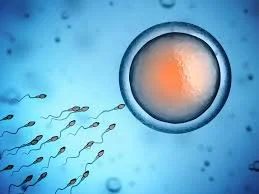
How can Hypnotherapy help with fertility & IVF?
Lifestyle & stress can have a huge impact on fertility. Hypnotherapy can help reduce stress resulting in you making better lifestyle choices - this is where I can help.
While many couples can conceive naturally within 2 years, others face challenges. Difficulties with conception can have a profound impact on a person's emotional well-being and mindset.
While doctors and physicians can assist with addressing physical and medical issues related to fertility, about a quarter of people who struggle with infertility face unexplained causes.
Stress and anxiety, when experienced over a prolonged period of time, can disrupt the production of Progesterone, the hormone necessary for ovulation, implantation, and sperm quality, in turn affecting fertility.
It's important to understand that the body's primary concern is survival. When the body and mind perceive a threat, all energy is directed towards self-preservation. Supporting and nurturing a feotus would place additional strain on the body, which is why stress can potentially interfere with the process of conception.
As a practitioner, I aim to address your emotional well-being. By providing tools and techniques to manage stress, anxiety, and other emotional challenges, we can work towards restoring balance in the mind and body, creating a more optimal environment for conception to occur.
By reducing stress and promoting a positive mindset, we can optimize your overall health and well-being, which may positively impact your fertility journey.
Women who were stressed produced 20% fewer eggs during a cycle than women who were not experiencing symptoms of stress. University of California, 2005.
Experiencing stress triggers the hypothalamus to release chemicals such as adrenaline, cortisol, and prolactin, which are helpful in times of crisis or fight/flight situations. However, these chemicals can interfere with the process of conception by inhibiting the production of progesterone, which is essential for building and maintaining the lining of the uterus.
In addition to hormonal disruptions, excessive stress can also disrupt the menstrual cycle and sleep patterns, and may lead to poor lifestyle choices that negatively impact fertility.
The emotional toll of trying to conceive and experiencing disappointment month after month can also affect a person's self-esteem, confidence, sex drive, and relationships.
While I cannot guarantee a successful pregnancy, I can help you restore balance in your mind and body, thereby stimulating the parasympathetic nervous system, also known as the "rest and digest" system. This can result in feelings of calm and relaxation, giving your body the best possible chances of conception.
As your practitioner, my goal is to support you in achieving a state of well-being that optimises your fertility potential. By addressing both the physical and emotional aspects of fertility, we can work together to create a holistic approach that promotes relaxation, reduces stress, and positively impacts your overall health and chances of conception.
Hypnotherapy can help by:
~ Increasing feelings of calm and relaxation
~ Reducing stress
~ Restoring physical mental and emotional balance and wellbeing
~ Emotional support
~ Improving sleep
~ Building resilience & coping skills
Identifying subconscious and conscious issues that may be preventing conception
How does lifestyle impact fertility?
If our lifestyle involves habits that are harmful to us, our wellbeing and stress levels can be thrown out of balance.
1- Quit smoking: Smoking increases the risk of miscarriage by 50% in women, and men who smoke may have lower sperm counts and a 20% decrease in sperm motility.
2 - Limit alcohol consumption: Alcohol can negatively impact fertility and sperm quality. Even moderate drinking (less than three units a day) can decrease the chances of conception.
3 - Avoid drug use: Cocaine can constrict blood vessels, which can affect the placenta and cause menstrual irregularities. Marijuana use can lower sperm count, decrease sperm motility, and lower testosterone levels in males.
4 - Reduce caffeine intake: High caffeine intake has been associated with increased chances of miscarriage and may also increase the risk of developing endometriosis.
5 - Steer clear of saunas: Elevated temperatures, such as those experienced in saunas, can decrease sperm production and motility in men.
6 - Engage in moderate exercise: Some research suggests that vigorous exercise (raising heart rate over 110 beats per minute) may decrease the chances of conception. It's recommended to engage in gentle exercise to maintain overall health and well-being. (Domar and Kelly, 2002, p. 271)
Note: Always consult with a healthcare professional for personalised advice on lifestyle changes that may impact fertility and reproductive health.
Ella Wolfman
Solution Focused Hypnotherapist
Mobile: 07796853866
Email: zenspacehypnotherapy@gmail.com
Hypnotherapy & IVF
Hypnosis can effectively double the success of IVF treatments.
While in vitro fertilization (IVF) can be successful, it is a lengthy and often complex treatment that involves intrusive and uncomfortable procedures. The stress of the process can be overwhelming, as it requires multiple hospital visits, examinations, tests, self-administering medication, and coping with hormonal changes and potential side effects of fertility drugs.
Hypnotherapy can be a beneficial tool in supporting you through the IVF process by fostering resilience and confidence in your own strength. By releasing negativity and anxiety, and promoting relaxation and balance in mind, body, and emotions, hypnotherapy can help you cope better with the challenges of IVF and promote a sense of well-being.
When the body is relaxed and in a state of well being the chances of conception are more likely.
Studies & Research
Women with depression, when treated showed a 60% viable pregnancy rate within six months, contrasting with 24% when depression went untreated. Journal of American Medical Women’s Association,1999,vol
———
In this study women were hypnotised for the embryo transfer of their IVF cycle. 28% became pregnant with hypnosis, compared to 14% of the non-hypnotised women in the control group.
https://pubmed.ncbi.nlm.nih.gov/16566936/
——
A study by Dr. Peter Quinn, chose a group of women between 26 and 42 for hypnotherapy. They all had suffered with infertility between 2-12 years.
After hypnotherapy 65% of the women had a successful full-term pregnancy.
(Dr P Quinn and M Pawson, “Psychosomatic Infertility,” European Journal of Clinical Hypnosis Vol4, 1994).


